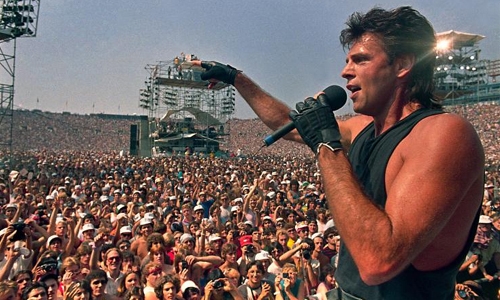Live Aid Concert: A Rhapsody for Bohemians
An estimated audience of 1.9 billion, across 150 nations, watched the live broadcast. It was on Saturday, 13 July 1985. With the then world’s largest satellite link-up and television broadcast, the ‘Live Aid’ music concert is said to have reached nearly 40 per cent of the world’s population. Held simultaneously at Wembley Stadium, London and at JFK Stadium in Philadelphia, it had caught the imagination all music lovers.
The desire to watch an eclectic repertoire of music, all through the day, from scores of artists – who performed free in aid of famine-stricken African nations – was a rarity that no one wanted to miss. In India, where I had watched it, there had been only one government television channel then, called Doordarshan. Known for its tight censorship, conservative culture, and rigid programming, it had suddenly shocked the country’s urban youth, into a frenzied delight, by announcing that it would be broadcasting the concert.
Live! The biggest talk on the campus therefore, for weeks before the telecast, was the ‘Live Aid’ show coming up. Actually, one must be very young, and living in the India of 1980s, to truly understand its implications. The impact of what ‘Live’ television meant, was one thing. And the impact of what ‘Western music concerts’ meant to Indian youth, not accustomed to such music reaching living rooms, meant another thing. Both, powerful, of course. So powerful that most of us stopped everything that day, to sit around television. In fact, the older boys reiterated the momentousness of the event, saying it was great artists coming together for a great cause.
The star-studded line-up, at the two venues, included Status Quo, The Who, U2, David Bowie, Elton John, Paul McCartney, Mick Jagger, Tina Turner, Bob Dylan, Led Zeppelin, Black Sabbath and even Crosby, Stills, Nash and Young. But one thing is sure. The world, and all of us, will only remember, very vividly, one performance of 20 minutes or so. That of Freddie Mercury, the lead vocalist of the British band, Queen. In a pair of faded blue denim jeans and a white vest/ singlet, holding the mike-stand with both hands, with his trade-mark hip-movement, he pranced across that massive stage, in front of that massive crowd with unbelievable energy. He engaged the audience in perhaps the most powerful moment in the history of music.
Among six of their hits that Queen had performed were ‘Bohemian Rhapsody’, ‘Radio Gaga’, ‘We Will Rock You’ and ‘We Are the Champions’. If he made an ecstatic audience to clap along and sing along, it’s not new. But to make them throat out ‘high notes’, and sustain them, with the singer’s voice, was a fun element no one will ever forget. With his amazing vocal range, his ability to work the crowd, and especially his performance of “the note heard round the world”, after singing ‘Radio Gaga’, he made an indelible imprint on the music world.
Before he was taken away from the real world, by that deadly killer called AIDS. This week, when I went to the movie ‘Bohemian Rhapsody’, a biopic on Freddie Mercury, I was particularly eager to see how the ‘Live Aid’ moment was reconstructed, and whether Rami Malek, who played Freddie Mercury, fitted the bill. He did. And, I must say, I felt the ‘Live Aid’ portion was true to the original. We may wish we had more of Freddie Mercury in it, than of the band. But then, it was like he used to say: ‘I am not the leader of the band. I am just Queen’s lead vocalist’. ‘Live Aid’ had many champions. But the big ones are those, we all know, without their telling us, ‘We are the Champions’.
Related Posts

